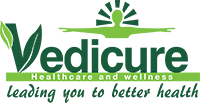What is PCOS?
PCOS or Polycystic Ovary Syndrome may be a hormonal disorder that’s common among women of reproductive age. PCOS may cause irregular or long menstrual periods or excess male hormone levels.
The ovaries could develop a number of small collections of fluid (follicles) and fail to regularly release eggs. Early intervention- diagnosis and treatment could reduce the long-term complications of PCOS like type 2 diabetes and a heart condition.
What are the symptoms of PCOS?
Symptoms of PCOS often develop around the time of the primary menstrual period during puberty. PCOS could also sometimes develop later, for instance, in response to substantial weight gain.
Here are a number of the symptoms of PCOS –
- Irregular periods: Infrequent, irregular or prolonged menstrual cycles are the foremost common sign of PCOS. For instance, you would possibly have fewer than nine periods a year, quite 35 days between periods and abnormally heavy periods.
- Excess androgen: Elevated levels of male hormones may end in physical signs, like excess facial and hair (hirsutism), and infrequently severe acne and male-pattern baldness.
- Polycystic ovaries: Your ovaries could increase in size and contain follicles that surround the eggs. This could result in the ovaries dysfunctioning.
What are the causes?
The exact explanation for PCOS isn’t known. Factors that may play a task include :
- Excess insulin: Insulin is that the hormone produced within the pancreas that permits cells to use sugar, your body’s primary energy supply. If your cells become immune to the action of insulin, then your blood glucose levels can rise and your body might produce more insulin. Excess insulin might increase androgen production, causing difficulty with ovulation.
- Low-grade inflammation: This term is employed to explain white blood cells’ production of drugs to fight infection. Research has shown that ladies with PCOS have a kind of low-grade inflammation that stimulates polycystic ovaries to supply androgens, which may cause heart and vessel problems.
- Heredity: Research suggests that certain genes could be linked to PCOS.
- Excess androgen: The ovaries produce abnormally high levels of androgen, leading to hirsutism and acne.
What are the complications related to PCOS?
Complications can include :
- Infertility
- Gestational diabetes or high vital sign thanks to pregnancy
- Miscarriage or premature birth
- Nonalcoholic steatohepatitis
- Metabolic syndrome
- Type 2 diabetes or prediabetes
- Sleep apnea
- Depression, anxiety, and eating disorders
- Abnormal uterine bleeding
- Cancer of the uterine lining
Obesity is related to PCOS and may worsen complications of the disorder.
What is the treatment for PCOS?
PCOS treatment is comprehensive. Changes in diet, lifestyle, and medication are done to effectively treat PCOS. For a good treatment, a PCOS doctor will take into account every aspect of your daily life. Horizon Prime’s Dr. Dimple Jain is the best PCOS specialist doctor in Mumbai.

